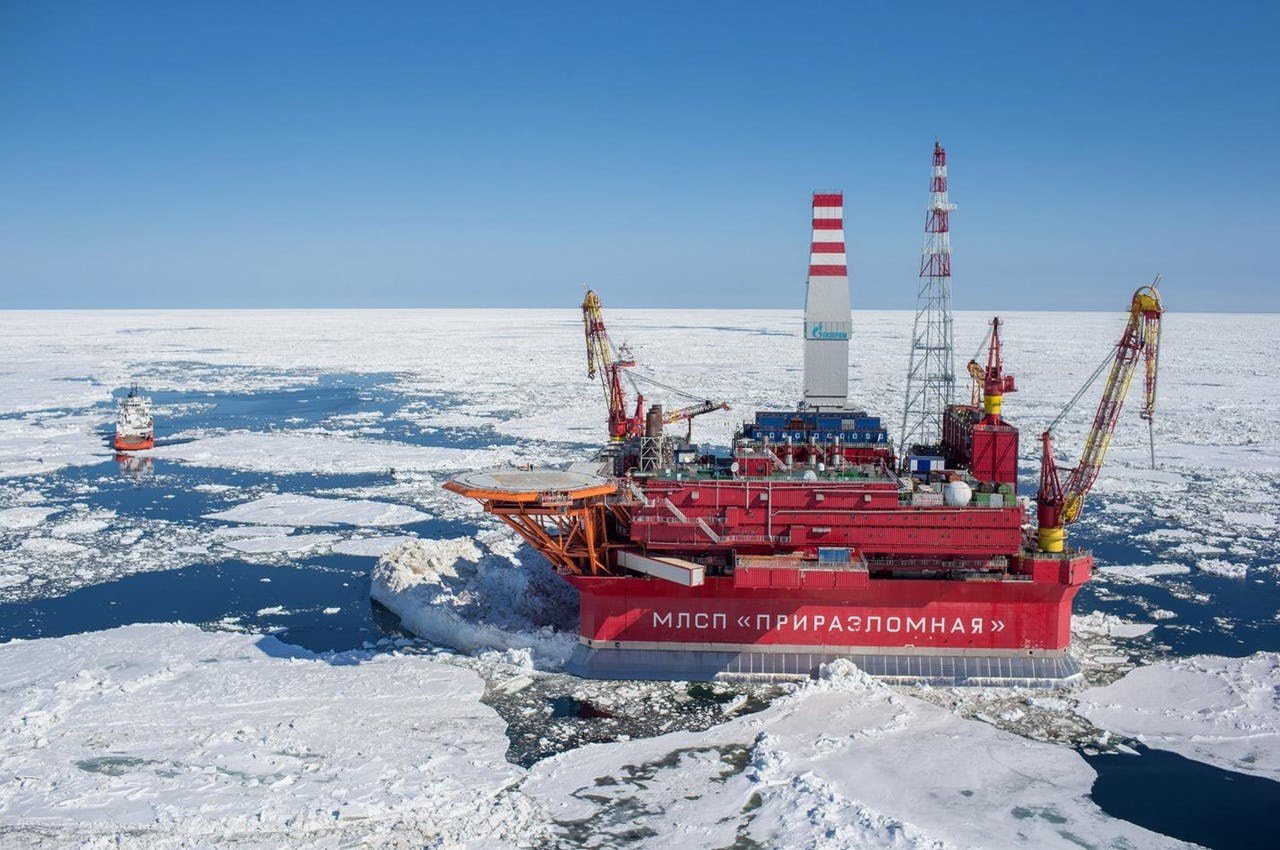Fearing Russia, China competition, US creates Arctic ambassador post
The new ambassador will replace the previous US position of Arctic coordinator, held by career diplomat Jim DeHart.
-

Arctic offshore oil platform “Prirazlomnaya” in the Pechora Sea, south of Novaya Zemlya, Russia (Gazprom.)
While China and Russia expand their presence in the waters made available by climate change, the United States announced on Friday that it will establish a position of Arctic ambassador to boost up diplomatic efforts.
Secretary of State Antony Blinken will shortly name an ambassador-at-large who will interact with other Arctic countries, Indigenous communities, and other stakeholders, according to State Department Spokesperson Vedant Patel.
"An Arctic region that is peaceful, stable, prosperous and cooperative is of critical strategic importance to the United States and a priority for Secretary Blinken," Patel said.
The Arctic has been warming at rates far higher than the rest of the earth, increasing the likelihood that formerly impassable streams will become accessible to both commercial and military vessels.
China has been building Arctic research stations, commonly seen as an introduction to a greater presence, while Russia has been increasing its presence near the North Pole in parallel, both with submarines and warplanes.
Blinken, at an Arctic Council meeting last year in Iceland, said that nations in the region had a "responsibility" to ensure "peaceful cooperation".
Read next: US Arctic military plans kept secret from Denmark, Greenland
The opening of several days of discussions on Arctic issues in Greenland coincides with the unveiling of the new role of the US ambassador-at-large.
Due to Russia's rotational chairmanship and the Western rejection it has received for its military operation in Ukraine, seven of the eight Arctic Council members terminated their membership earlier this year. That said, the new ambassador will replace the previous US position of Arctic coordinator, held by career diplomat Jim DeHart.
This comes in light of NATO Secretary General Jens Stoltenberg's statement on August 25 that cooperation between Russia and China in the Arctic poses a "strategic challenge to the values and interests of the alliance."
"Russia has significantly increased its military activity in recent years, setting up a new Arctic Command, opening hundreds of new and former Soviet-era Arctic military sites, including airfields and deep-water ports, and using the region as test-bed for novel weapon system," Stoltenberg wrote in an article for Canadian newspaper The Globe and Mail.
"Russia’s ability to disrupt Allied reinforcements across the North Atlantic is a strategic challenge to the Alliance," he claimed.
Read next: Stoltenberg: NATO eyes Arctic militarily, economically as ice melts

 3 Min Read
3 Min Read








